中国共产党尊重和保障人权的伟大实践(双语全文)
新华网 2021-06-25 10:01

五、依法保障公民基本权利
V. Protecting the Basic Rights of Citizens in Accordance with the Law
中国共产党将依法治国和人权保障有机结合,贯穿于社会主义法治建设全过程。在推进全面依法治国进程中,科学立法为保障人权提供了坚实的法律体系,严格执法为保障人权提供了良好的法治政府环境,公正司法为保障人权提供了有力的司法救济途径。建立了以党章为本、若干配套党内法规为支撑的党内法规制度体系,强力反腐维护人民利益。
The CPC has integrated law-based governance with human rights protection, promoting both throughout the whole process of socialist rule of law. In advancing law-based governance, sound legislation has created a legal system to protect human rights, strict law enforcement has fostered a good law-based environment for human rights protection, and judicial justice has provided an effective channel for judicial remedy in the field of human rights. A sound system of intra-Party regulation has been formed based mainly on the Party Constitution and supplemented by other intra-Party rules, which is most effective in fighting corruption and safeguarding people’s interests.
(一)健全基本权利保障的法律体系
1. Improving the Legal System to Protect People's Basic Rights
在中国共产党的领导下,中国特色社会主义法律体系已经形成,人权保障各方面立法较为完备。以宪法为根本依据,中国制定和完善了一系列保障人权的法律制度,为人权保障提供了法治基础。截至2021年4月,中国现行有效的法律共计277件,涵盖了宪法及宪法相关法、民商法、行政法、经济法、社会法、刑法、诉讼及非诉讼程序法等领域。民法典体现了对生命健康、财产安全、生活幸福、人格尊严等各方面权利平等保护,对依法维护人民权益、推动我国人权事业发展具有重要意义;基本医疗卫生与健康促进法、食品安全法、传染病防治法、体育法等法律法规为维护公民生命权、健康权作出了细致规定;刑法、刑事诉讼法确立罪刑法定、无罪推定、非法证据排除等原则规则,明确禁止刑讯逼供;立法法、行政强制法、行政处罚法对限制人身自由的强制措施和处罚进行了严格的法律保留;选举法、劳动法、教育法等法律法规将公民的选举权、被选举权、劳动权、受教育权等纳入基本保障体系。
Under the leadership of the CPC and based on the Constitution, a Chinese socialist system of laws has taken shape, providing a relatively complete legal system to protect human rights. As of April 2021, there were 277 laws in force in China, including the Constitution and related laws, civil and commercial law, administrative law, economic law, social law, criminal law and procedural law related to litigation and non-litigation. The Civil Code plays an important role in equal protection of people’s rights and advancing the cause of human rights in such areas as life and health, property, people’s wellbeing and human dignity. The Law on Promotion of Basic Medical and Health Care, the Food Safety Law, the Law on Prevention and Treatment of Infectious Diseases and the Law on Physical Culture and Sports include provisions to protect citizens’ rights to life and health. The Criminal Law and the Criminal Procedure Law provide the principles of legality, presumption of innocence, and exclusion of evidence obtained by illegal means, explicitly banning forced confessions. The Legislation Law, the Administrative Compulsion Law and the Law on Administrative Penalties follow the principle of strictly confining any compulsory measures and penalties involving personal freedom within the precise scope of the relevant laws. The Electoral Law, the Labor Law and the Education Law have incorporated into the protection system the citizens’ rights to vote, to be elected, to work and to access education.
(二)建设基本权利保障的法治政府
2. Applying Rule of Law in Governance to Safeguard the Basic Rights of the People
不断强化依法行政,建设职能科学、权责法定、执法严明、公开公正、廉洁高效、守法诚信的法治政府。中共十八大以来,中共中央、国务院先后印发《法治政府建设实施纲要(2015-2020年)》《法治中国建设规划(2020-2025年)》等文件,从政府职能、行政制度、行政决策、行政执法以及法治思维等方面对实现建成法治政府这一目标提出措施构想,切实保障公民基本权利。
China has made efforts to strengthen law-based governance and build a government that is open, impartial, clean, efficient and honest, with properly defined functions, statutory powers and responsibilities, and strict law enforcement. Since the 18th CPC National Congress in 2012, the CPC Central Committee and the State Council have released the Implementation Outline for Building a Law-based Government (2015-2020) and the Plan on Developing the Rule of Law in China (2020-2025) and other documents, putting forward measures and ideas for government functions, administrative institutions, administrative decisions, administrative law enforcement, and thinking in terms of the rule of law, thus effectively ensuring that people enjoy their basic rights.
把行政权力限制在法治框架之中。确立法无授权不可为的行政执法原则,完成行政机构改革,禁止法外设权、违法用权。落实行政规范性文件制定和监督管理规定、重大行政决策程序规定,实施政府法律顾问、公职律师制度。行政执法程序更加科学规范,建立行政裁量权基准制度和行政执法调查取证、告知、罚没收入管理、行刑衔接等制度,全面推行行政执法公示制度、执法全过程记录制度、重大执法决定法制审核制度,依法扩大听证事项范围、明确听证程序效力,推广非强制性执法手段,实施人性执法、柔性执法,建立“首违不罚制”。
Administrative power is constrained within the perimeter of the law. China has established a principle under which administrative bodies must not take any action that is not mandated by law. It has completed reform of the administrative structure, and prohibited any exercise of power not provided for by law, or any illegal use of power. The state has issued regulations on enacting normative documents and supervising and managing the implementation of such documents, and regulations on major administrative decision-making processes. It is prescribed that all government departments should employ legal advisers and government lawyers. China has improved its procedural standards for administrative law enforcement, and established a system of benchmarks for administrative discretion. It has developed systems to conduct investigations and collect evidence in administrative law enforcement, to keep any parties concerned informed, to manage the revenues from fines and confiscation, and to connect administrative law enforcement with criminal justice. The state has established public notification of administrative law enforcement, a recording system throughout the whole process of law enforcement, and a legal review of major law enforcement decisions. It has expanded the scope of hearings, and defined the effectiveness of hearing procedures. It has promoted non-mandatory law enforcement, carried out humane and flexible law enforcement, and established the principle of no punishment for a first offense that is trivial and has no serious consequences.
全面加强行政执法监督救济。实现案件流程信息化管理和同步记录,加强对执法活动的实时监督。建立以执法考评为主要内容的绩效考核体系,完善公正高效、便民为民的行政复议制度,建设行政执法信息平台和行政执法监督网络平台,实现执法队伍专业化、执法行为标准化、执法管理系统化、执法流程信息化。强化责任追究机制,有效规范行政执法行为。
China has strengthened the supervision of administrative enforcement of the law in all respects and improved the remedial process. China uses IT application in the management and on-site recording of case-handling procedures, and has strengthened real-time supervision over law enforcement activities. It has established a performance appraisal system with the focus on law enforcement, and put in place a sound administrative review system that is impartial, efficient and convenient and works in the interest of the people. The state has developed platforms to provide information and online supervision concerning administrative law enforcement, ensuring that enforcement personnel are professional and follow standardized rules in their work, and law enforcement management is systematic, and applying IT in the procedure. It has strengthened accountability mechanisms and effectively regulated administrative acts.
建设服务型政府。持续深化改革,加快转变政府职能,以法治手段维护公平竞争环境,加强监管和服务。终结非行政许可审批,全面推行证明事项和涉企经营许可事项告知承诺制,事中事后监管得到加强并持续优化。编制政务服务事项清单,建立政务服务“好差评”制度,简化办事流程,打造优质高效的办事服务环境。推行在线公共服务,着力建设全国一体化在线政务服务平台,推进各地区、各部门政务服务平台规范化、标准化、集约化建设和互联互通,推进基本公共服务的均等化、普惠化、便捷化。
In its effort to build a service-oriented government, China has continued to deepen reform, accelerate the transformation of government functions, ensure an environment of fair competition by legal means, and strengthen oversight and service provision. It has phased out licensing of matters not covered by the Law on Administrative Licensing, and replaced the provision of documentary evidence with an undertaking that relevant conditions have been met, for applications concerning individual matters and operating permits required for businesses, with strengthened oversight during and after the process. Government departments have published a full list of their services, established a government service evaluation system, and streamlined work processes to create a quality and efficient service environment. The central government has promoted online public services, advanced a national online platform for government services, and improved the standards, efficacy and connectivity of the service platforms of different regions and departments, ensuring that everyone has equitable and convenient access to basic public services.
(三)完善基本权利保障的司法制度
3. Improving the Judiciary to Protect the Basic Rights of Citizens
深化司法体制改革,优化司法职权配置,确保审判权检察权依法独立公正行使。推进司法人员分类管理制度和司法职业保障制度改革。实行省级以下地方法院、检察院人财物统一管理,推进跨行政区划的人民法院和人民检察院的设立,部分省市设立知识产权法院、互联网法院、金融法院等。
By deepening reform of the judiciary, China has improved the allocation of judicial powers and responsibilities to ensure independent and impartial exercise of judicial power and the power of prosecutors. It has reformed the category-based management of judicial personnel and job security for the judicial profession. The state has carried out unified management of personnel, funds and property in people’s courts and procuratorates under the provincial level, and set up trans-regional people’s courts and people’s procuratorates. Courts to handle intellectual property and financial cases, and online courts have been established in some provinces and equivalent administrative units.
全面落实司法责任制,深化司法责任制综合配套改革,明确法官、检察官办案的权力和责任,完善惩戒机制,强化制约监督。人民法院完善审判权力和责任清单,严格违法审判责任追究,做到“让审理者裁判、由裁判者负责”。人民检察院建立以办案质量、效率和效果为基本内容的检察官业绩评价指标体系和考评机制,实现“谁办案谁负责、谁决定谁负责”。严格落实防止干预司法的相关规定。
To implement judicial accountability in all respects, China has carried out comprehensive and integrated reform of the judicial system. The state has made clear the powers and responsibilities of judges and prosecutors, improved the disciplinary mechanisms, and strengthened checks and oversight. The people’s courts have improved the list of judicial power and responsibilities, and strictly implemented the accountability system for unlawful judicial decisions, ensuring that those who hear cases pass judgments and take accountability for the cases they have adjudicated. The people’s procuratorates have developed a performance measurement system and evaluation mechanisms for prosecutors, focusing on the quality, efficiency and effectiveness of their case handling, to ensure that those who handle a case and make a ruling assume full responsibility for it. China has strictly implemented regulations to prevent interference in the justice system.
全面严格实施立案登记制,充分保障当事人诉权。坚持宽严相济刑事政策,精准适用刑罚。完善刑事诉讼程序,规范认罪认罚从宽制度的适用,健全刑事案件速裁程序实施机制,深化案件繁简分流,依法及时有效惩罚犯罪、保障人权。2020年,认罪认罚从宽制度全年适用率达86.8%。修改民事诉讼法,完善民事证据制度,促进纠纷有效解决,民事诉讼程序繁简分流试点在15个省份20个城市305家法院推开。加强对公共利益的司法保护,完善检察机关提起公益诉讼制度。修改行政诉讼法,强化行政相对人合法权益保护,发布行政机关负责人出庭应诉相关规定。
China has strictly implemented a case docketing and registration system across the board to fully protect citizens’ right to take legal action. The judiciary has continued to combine harsh punishment and leniency in handling criminal cases, and apply appropriate penalties in accordance with the law. It has improved criminal proceedings and standardized the system of showing leniency to suspects and defendants who confess to their crimes. China has improved a fast-track sentencing procedure for criminal cases and further separated the handling of simple and complex cases to punish those found guilty promptly in accordance with the law and to protect human rights. In 2020, 87 percent of the criminal cases were treated with leniency after the accused pled guilty. China has amended the Civil Procedure Law and improved the system of civil evidence to provide solutions to disputes more effectively. Separation of simple and complex civil cases has been piloted in 305 courts in 20 cities in 15 provinces. The state has strengthened judicial protection of public interest, and improved the system by which prosecuting bodies can bring public interest lawsuits to court. It has amended the Administrative Procedure Law, strengthened the protection of the legitimate rights and interests of any individual subjected to an administrative action, and issued regulations stipulating that the individual in charge of an administrative agency should appear in court if a lawsuit is filed against the agency.
深化司法公开,建立健全阳光司法机制。不断加强审判流程、庭审活动、裁判文书、执行信息司法公开平台和12309中国检察网信息公开平台、中国检察听证网建设。截至2021年4月,中国裁判文书网文书总量1亿多篇,访问总量607.34亿次,全国法院庭审直播数量累计突破1267.6万场。加强对司法活动的监督,深化刑事诉讼监督,加强民事行政诉讼监督,开展公益诉讼监督。落实人民陪审员法,不断完善人民陪审员制度,深化人民监督员制度改革。
Judicial activities are becoming more open to increase judicial transparency. China has improved the information-releasing platforms on judicial procedures, trials, written judgments, and the execution of judgments. It keeps improving the service of China Procuratorial Network and China Procuratorial Hearing Network. As of April 2021, China Judgments Online had published over 119 million judgments, attracting 60.7 billion visits. About 12.7 million court trials had been broadcast live. China has strengthened supervision over judicial activities, criminal proceedings and civil administrative proceedings, and carried out supervision over public interest litigation. It has implemented the Law on People’s Jurors, improved the system of people’s jurors, and deepened reform of the system of people’s supervisors.
保障当事人获得公正审判的权利。深入推进以审判为中心的刑事诉讼制度改革,严格贯彻罪刑法定、疑罪从无、证据裁判、非法证据排除等法律原则规则,完善出庭作证机制,实现庭审实质化。充分保障犯罪嫌疑人和被告人的辩护权和获得法律帮助的权利,深入开展刑事案件律师辩护全覆盖试点;保障辩护律师会见、阅卷、调查取证、质证和辩论辩护等各项诉讼权利;完善保障律师依法履职机制,建立健全维护律师执业权利快速联动处置机制。坚持实事求是、有错必纠,防范和纠正冤假错案。严格控制并慎用死刑,大幅减少适用死刑的罪名。
China strives to ensure that those accused of criminal offences receive a fair trial. China has promoted reform of the criminal litigation system centered on the court trial. It strictly follows the principles of legality, presumption of innocence, and evidence-based verdict, and excludes any evidence obtained by illegal means. It has improved the mechanism for witnesses to appear in court, and ensures that court trial plays the decisive role in the judicial process. China has fully guaranteed the rights of criminal suspects and defendants to defense and to legal aid. Pilot work has been advanced to ensure that a legal defense is provided in all criminal cases. The state protects defense lawyers’ right to meet their clients, to examine the case files, to investigate and obtain evidence, to conduct cross-examination, to debate and defend, and other rights related to court hearings. It has improved the mechanism for lawyers to perform their duties in accordance with the law, and formed a joint quick response system to ensure lawyers’ right to practice. China follows the principle of seeking truth from facts and corrects any mistakes found in judicial proceedings to prevent and address miscarriage of justice. China is very cautious about using the death penalty, and the number of crimes punishable by the death penalty has been reduced significantly.
保障犯罪嫌疑人、被告人、服刑人员、社区矫正对象、戒毒人员及刑满释放人员的合法权利。进一步完善减刑、假释、暂予监外执行制度,持续构建开放、动态、透明、便民的监狱阳光执法机制,持续提升监狱执法规范化水平。制定出台社区矫正法及其实施办法,不断推动社区矫正工作制度化、规范化、专业化发展,依法开展监督管理和教育帮扶等活动,促进社区矫正对象在开放化社会环境下顺利回归社会。出台禁毒法、戒毒条例等,依法保障戒毒人员合法权益,开展执法监督。建立健全社会组织参与帮教特殊人群的机制和制度,落实社会救助和就业安置措施,促进刑满释放人员顺利融入社会。
China ensures the legitimate rights and interests of criminal suspects, defendants, prisoners, minor offenders under community correctional programs, people on drug rehabilitation and people released from jail after serving their sentence. China has put in place sound systems of commutation, parole and temporary execution of sentence outside prison, and continues to improve the mechanisms for promoting open, dynamic, transparent, and convenient law enforcement in prison, and to standardize law enforcement in prison. The government has promulgated the Community Correction Law and measures for its implementation, which has helped to institutionalize and standardize sentences of community services and made the system more professional. It has strengthened supervision, management and education of and assistance to those sentenced to community service, and a less restrictive social environment can help them reintegrate into society more smoothly. The state has promulgated the Narcotics Control Law and the Regulations on Drug Rehabilitation, ensured the legitimate rights and interests of persons in rehabilitation, and carried out law enforcement supervision in this regard. China has improved the institutions and mechanisms for social organizations to help educate the people released from jail after serving their sentence, ensured their access to social assistance, and provided employment assistance to them to facilitate their return to normal life.
建立健全权利救济和司法救助制度。建立完善国家赔偿制度,赔偿标准随经济社会发展不断提高,侵犯公民人身自由权每日赔偿金额从1995年的17.16元,上升到2021年的373.10元。健全完善国家司法救助制度,设立司法救助委员会,建立健全司法救助与社会救助、法律援助的衔接机制,帮助受到侵害但无法获得有效赔偿的当事人摆脱生活困境。
China has improved the system of remedy for infringement of rights and judicial assistance. It has put in place a state compensation system. Compensation has increased over the years along with the economic and social development of the country. The daily compensation for violation of a citizen’s personal liberty has risen from RMB17.2 in 1995 to RMB373.1 in 2021. China has improved the state judicial assistance system. It has established judicial assistance committees, and improved the institutions for dovetailing judicial assistance with social assistance and legal aid to help victims of a crime who are unable to obtain sufficient compensation to extricate themselves from financial difficulties.
建立和完善公共法律服务。加快推进建设覆盖城乡、便捷高效、均等普惠的现代公共法律服务体系。建立健全法律援助制度,发布刑事、民事、行政法律援助服务规范,加大法律援助力度。全面推进律师事业发展,截至2021年4月,全国律师总人数已达52.9万。
China strives to improve its public legal services. The state has stepped up efforts to develop a modern network covering both urban and rural areas that provides convenient and efficient public legal services to all. A sound legal aid system has been established and specifications for criminal, civil and administrative legal aid services have been issued to provide legal aid to more people. China encourages the development of the legal profession. As of April 2021, there were 529,000 lawyers throughout the country.









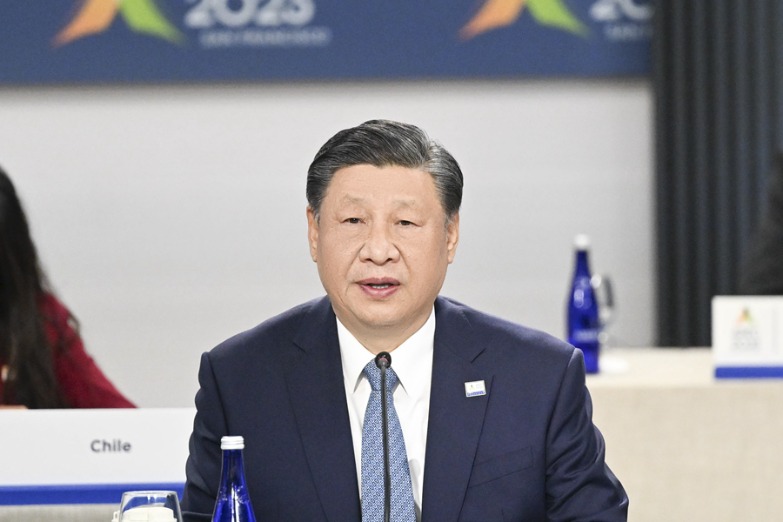
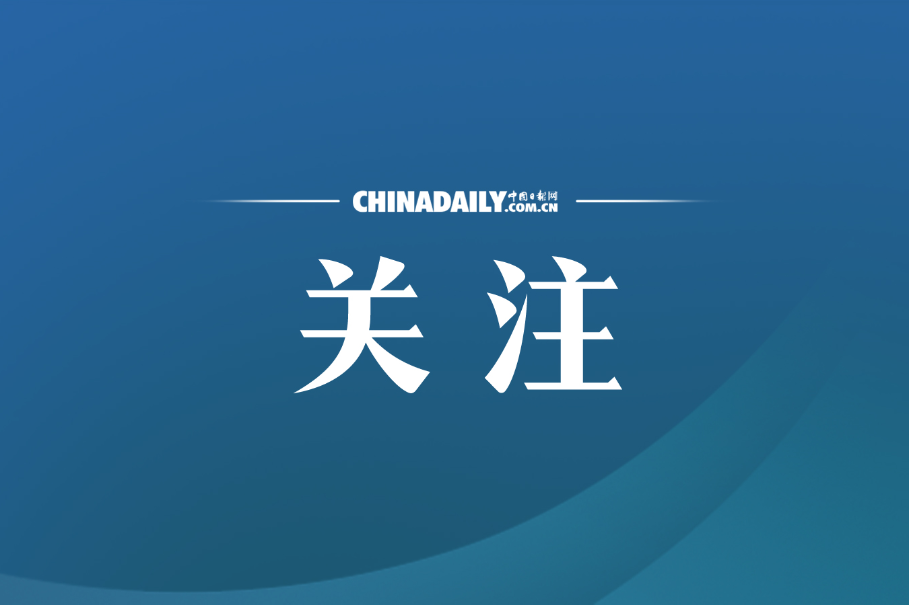
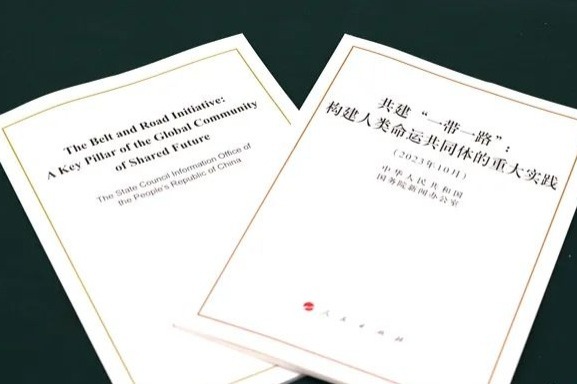
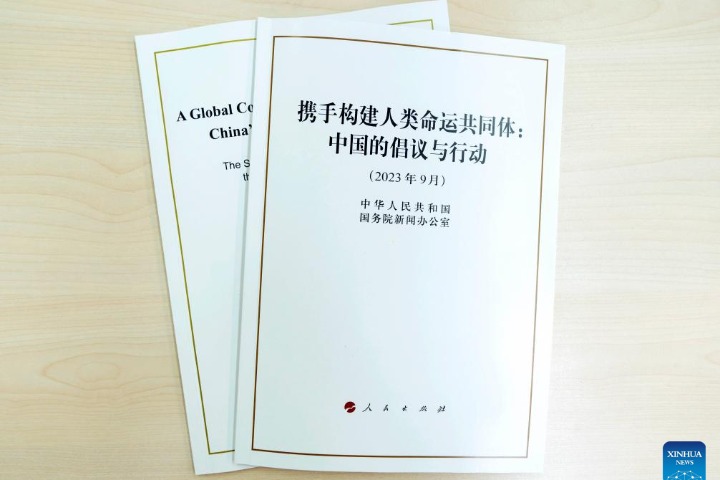
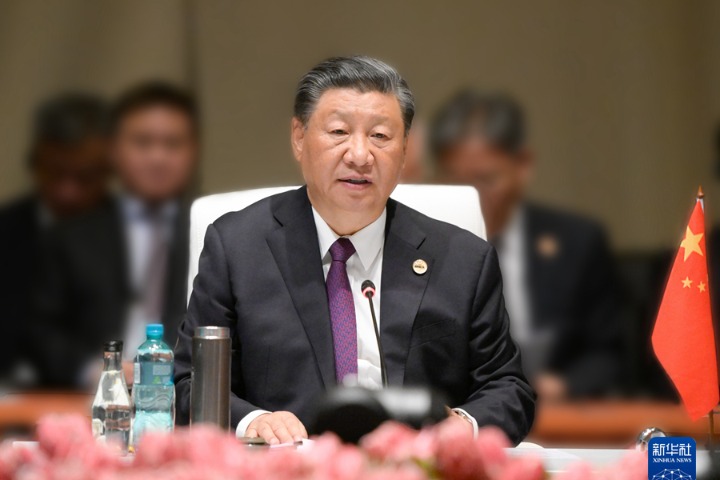



 英语点津微信
英语点津微信 双语小程序
双语小程序